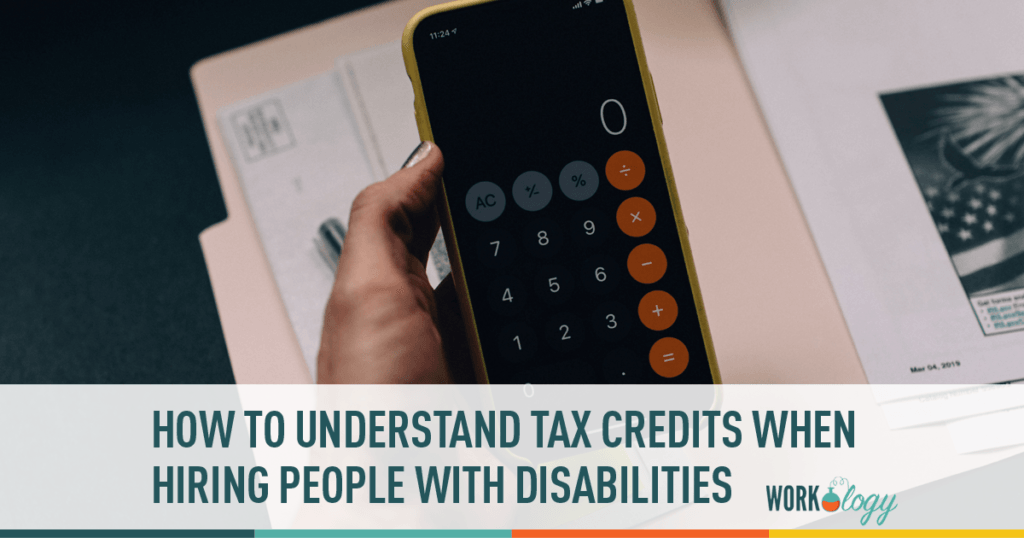As an employer hiring a person with disabilities, it is imperative that you are aware of the disability tax credits available to businesses. Not only do these tax breaks increase the bottom line for your company, they are very fairly easy to understand!
How to Understand Tax Credits When Hiring People with Disabilities
There are three common types of disability tax credits: The Work Opportunity Tax Credit, Disabled Access Tax Credit and the Barrier Removal Tax Deduction. Additional disability tax credits may vary by state, so it’s a good idea to become familiar with state allowances or specifics, as well.
The Work Opportunity Tax Credit
- Available to all businesses
- Employer gets a credit for a portion of the salary
- Credits are doubled if a disabled veteran is hired
- There is no limit to the number of times a business can apply
This tax credit applies to 40% of the first $6,000 in wages paid to each new disabled employee for the first year of employment (FYI- that’s a maximum tax credit of $2,400 per new hire). The employer can apply for this tax credit after the disabled employee has worked at least 90 days or 120 hours. Keep in mind, the disabled employee must be part of a “target group” to receive this tax credit. It’s best to work directly with your local vocational rehabilitation counselor or an employment agency to figure out which potential employees qualify. This tax credit is doubled if your company hires a disabled veteran that qualifies. You can refer to this PDF from the IRS on more details about The Work Opportunity Tax Credit.
Disabled Access Tax Credit
- Only small businesses can qualify
- Annual tax credit
- Tax deduction up to $5,000
- Covers expenses such as sign language interpreters, the purchase of adaptive equipment, the production of materials in an accessible format and more
Small businesses that qualify either 1) earned a million or less in the previous year or 2) had 30 or fewer full-time employees in the previous year. The Disabled Access Tax Credit is 50% of the expenditures over $250, not to exceed $10,250, for a maximum benefit of $5,000. Keep in mind the credit amount is subtracted from total tax liability. A small business can apply for this every year if the tax credit qualifications are met. You can refer to this PDF from the IRS for more details about the Disabled Access Tax Credit.
Barrier Removal Tax Deduction
- Available to all businesses
- Annual tax credit
- Tax deduction up to $15,000
- Covers expenses such as widened walkways, handicapped parking, accessible restrooms and more
The Barrier Removal Tax Deduction encourages businesses to remove items that impose the mobility of disabled or elderly people. Businesses may use the Disabled Access Tax Credit and the Barrier Removal Tax Credit in the same year if the requirements and expenses are met. For details on what qualifies for the Barrier Removal Tax Deduction, visit The Americans with Disabilities website, specifically their Standards for Accessible Design.
The tax breaks for hiring people with disabilities might be a little overwhelming at first, but once you understand them they can be very beneficial to your company’s bottom line! Understanding these tax breaks can save your company money and encourage the hiring of people with disabilities. If you have any additional questions about qualifications, reach out to a local vocational rehabilitation counselor or employment agency that can answer your questions and clarify any state/local regulations.








